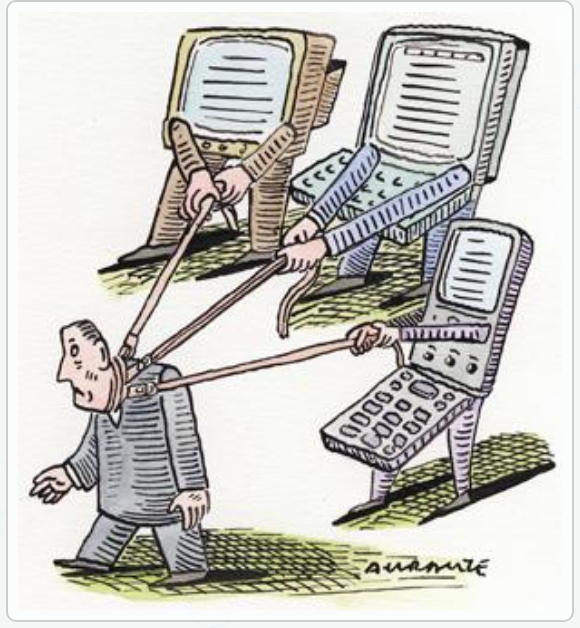
In the world of The Tempest, Prospero, the rightful Duke of Milan, is marooned on an island with his daughter Miranda and the spirit Ariel. On the island, Prospero uses magic to control and manipulate the other characters, including the drunken butler Stephano and the King of Naples, Alonso. As the play progresses, the themes of power, freedom, and control come to the forefront.
In the second act, Ariel pleads with Prospero to set him free, saying “If I do prove her haggard, thou shalt fly away / And like an empty eagle, sing and say / ‘I am thy Ariel; come, I will shade thee / From the heat o’ the sun and hold thee by the book, / That thou mayst be my queen.'” (Shakespeare 2.1). The power dynamic between Prospero and Ariel, with Prospero holding control over Ariel, and Prospero keeping him captive through his magic highlights this theme of ultimate power. Prospero and Ariel’s relationship reflects the relationship between technology and its users, as explored by Shoshana Zuboff in her book “The Age of Surveillance Capitalism.” In it, Zuboff argues that tech companies have a similar hold over individuals, using their data and attention to manipulate them for their own benefit; they want to create “behavioral futures markets” (Zuboff 15). For example, Zuboff says that Google and Facebook have taken advantage of the abundance of personal data available online and use it to create sophisticated algorithms that track individuals’ behavior and predict their desires. The gathered information is then used to influence their thoughts, feelings, and actions, turning individuals into passive receivers of commercial messages.
Furthermore, the themes of freedom and control are explored through the character of Caliban, who rebels against Prospero’s rule and yearns for independence. In relation to Mattias Desmet in “The Psychology of Totalitarianism,” Caliban’s struggle for freedom can be seen as a metaphor for the tension between the individual and the state and the conflict between the individual and the technologies they use. Desmet states, “The Enlightenment tradition had promised people autonomy and freedom, but, in a way, it brought people greater (feelings of) dependence and powerlessness than ever before” (Desmet 40). The idea of the struggle for autonomy and independence is analyzed in relation to power structures and the human desire to break free from constraints. Desmet argues that this tension is reflected in the relationship between Caliban and Prospero in The Tempest. Just as Caliban desires to be free from Prospero’s control and assert his own independence, individuals today may also desire to be free from the control of technology and the companies that control it. This desire stems from the growing sense that technology is becoming a dominant power structure, manipulating individuals for its own benefit and undermining their autonomy. From the wise words of George Orwell’s 1984, “[Caliban] loves Big Brother” (Orwell 319).
In the end, The Tempest offers a nuanced exploration of the relationship between power, freedom, and control, themes that are still relevant today as technology continues to shape our world. Prospero’s use of magic to control and manipulate others can be seen as a parallel to the ways in which tech companies use data to control and manipulate their users. Meanwhile, Caliban’s struggle for freedom highlights the need for individuals to assert control over technology, rather than allowing it to control them.